Find Help
More Items From Ergsy search
-
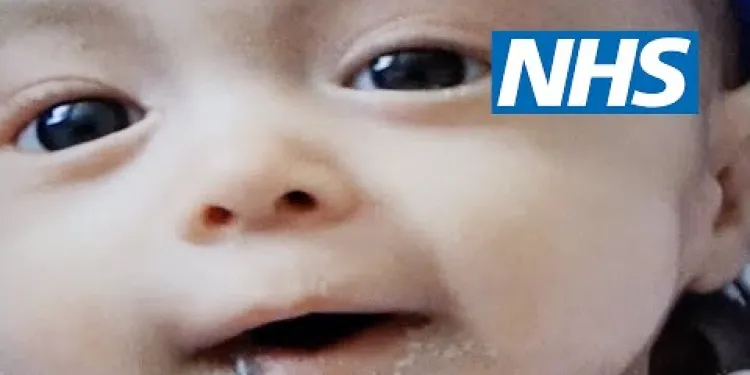
Having a child with Edwards' syndrome (trisomy 18) | NHS
Relevance: 100%
-
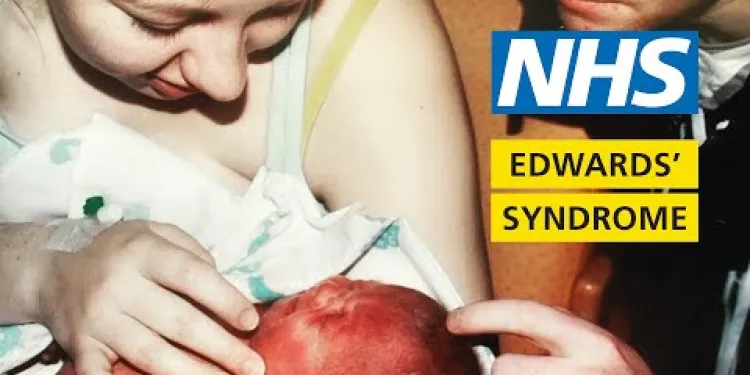
What it's like to have a baby with Edwards' syndrome - My Story - Chloe and Penelope | NHS
Relevance: 57%
-
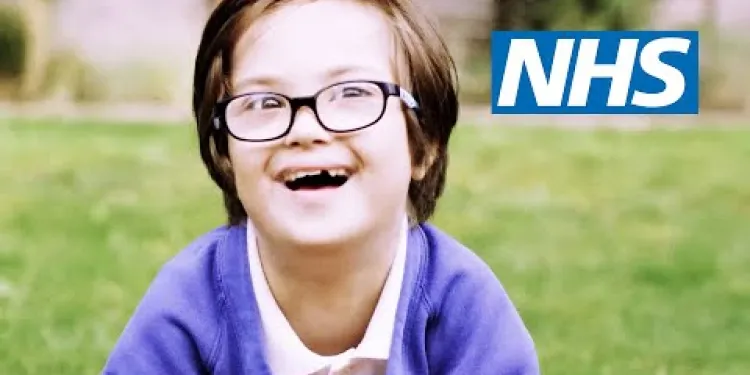
Having a child with Down's syndrome | NHS
Relevance: 43%
-
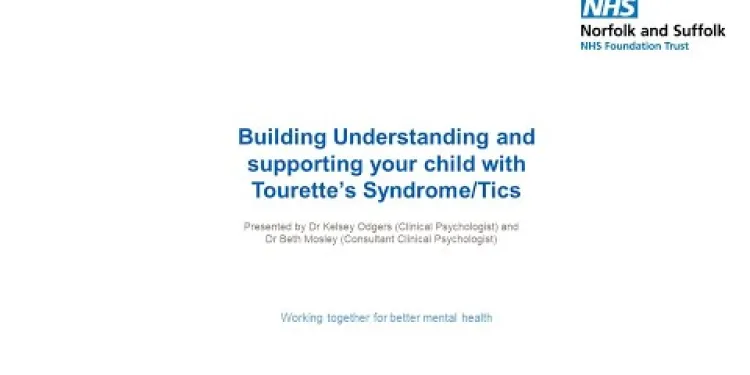
Building Understanding and Supporting Your Child with Tourette’s Syndrome/Tics
Relevance: 33%
-

Down's syndrome: Emily's story | NHS
Relevance: 27%
-

Prader-Willi Syndrome | NHS
Relevance: 24%
-

Munchausen's syndrome | NHS
Relevance: 23%
-

Can children develop chronic fatigue syndrome?
Relevance: 23%
-

What is Cushing's syndrome?
Relevance: 22%
-
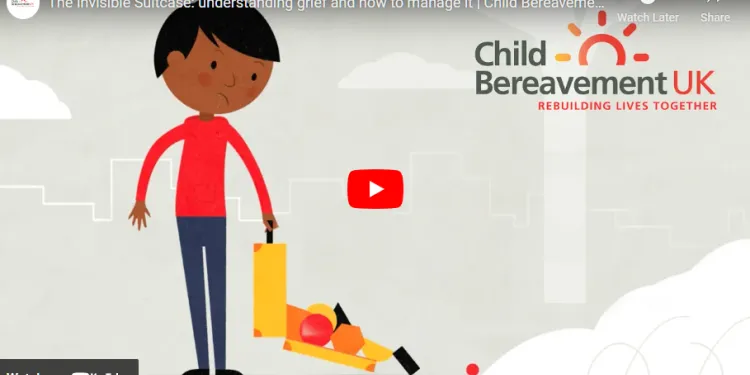
Child Bereavement
Relevance: 21%
-

My Stammering Child
Relevance: 21%
-
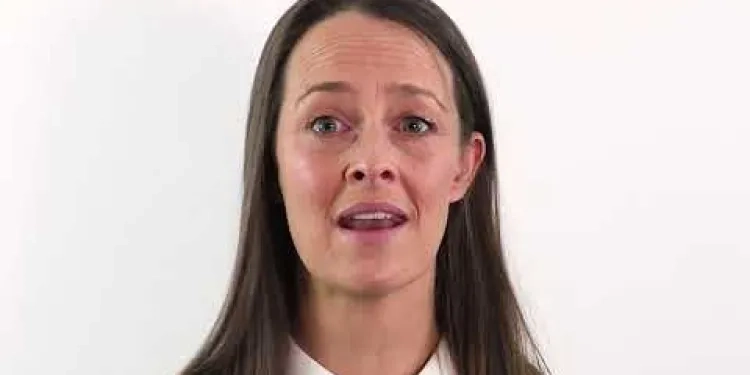
Carpal Tunnel Syndrome
Relevance: 21%
-
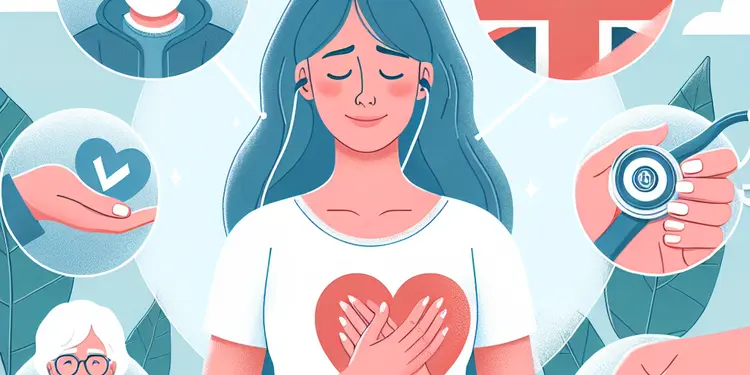
Is chronic fatigue syndrome contagious?
Relevance: 20%
-
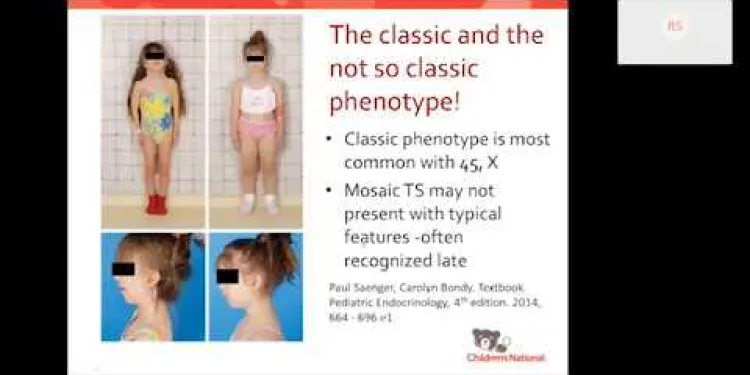
Turner syndrome: Beyond the classic XO phenotype
Relevance: 20%
-

What is congenital rubella syndrome?
Relevance: 20%
-

What causes Carpal Tunnel Syndrome?
Relevance: 20%
-
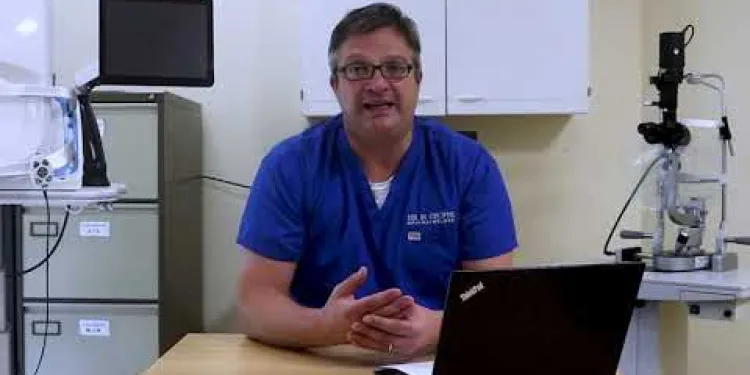
Charles Bonnet Syndrome
Relevance: 20%
-

What causes chronic fatigue syndrome?
Relevance: 20%
-

Navigating Child Custody Laws in the UK
Relevance: 20%
-
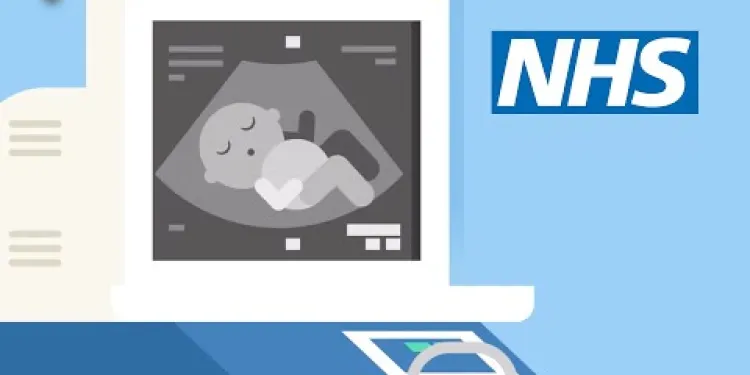
Screening tests for you and your baby | NHS
Relevance: 20%
-

Is Carpal Tunnel Syndrome covered by the NHS?
Relevance: 20%
-

Exercises for sciatica: piriformis syndrome | NHS
Relevance: 20%
-

Is screening painful or risky for my child?
Relevance: 20%
-

How is Carpal Tunnel Syndrome diagnosed?
Relevance: 20%
-

Caring for a child with fever | NHS
Relevance: 19%
-
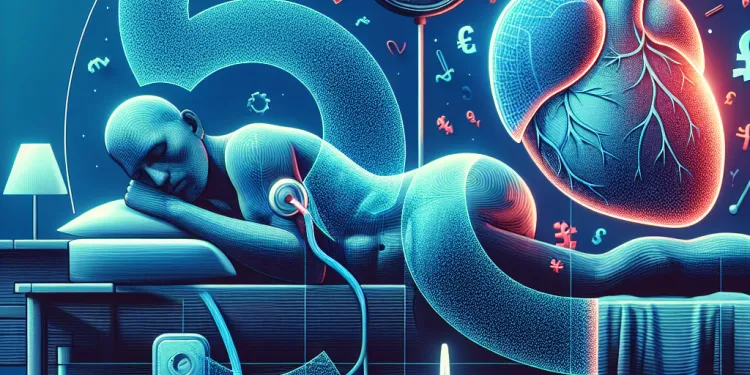
What is complex sleep apnea syndrome?
Relevance: 19%
-

What is complex sleep apnea syndrome?
Relevance: 19%
-

What is Carpal Tunnel Syndrome (CTS)?
Relevance: 19%
-

What is chronic fatigue syndrome?
Relevance: 19%
-
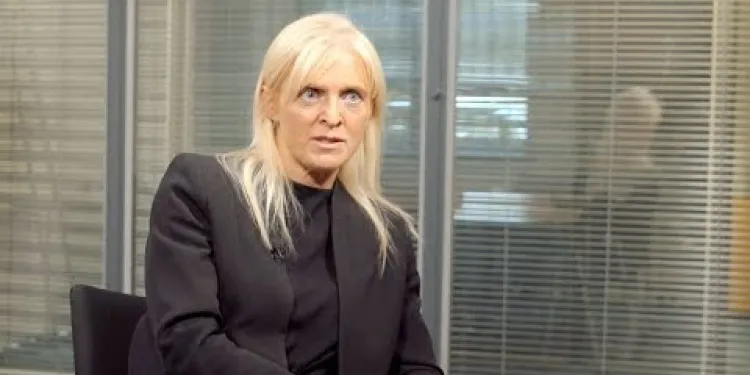
Child Care Proceedings | Family Law
Relevance: 19%
-

How can I prevent Carpal Tunnel Syndrome?
Relevance: 19%
-

What is the difference between autism and Asperger's syndrome?
Relevance: 19%
-

What should I do if I suspect my child is being groomed?
Relevance: 19%
-

Can my child get braces on the NHS?
Relevance: 19%
-
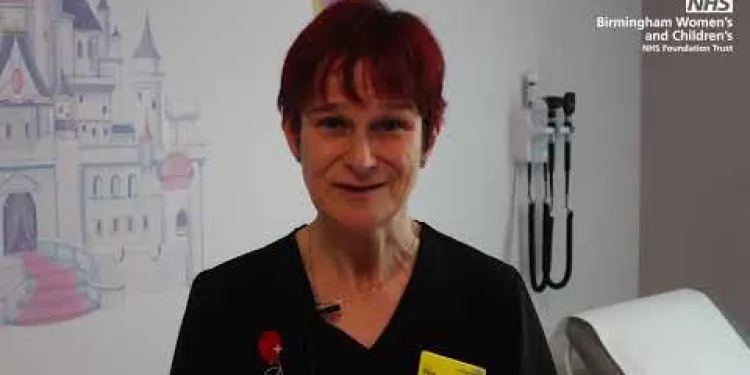
My child has vomiting and diarrhoea - what do I do?
Relevance: 18%
-

Are there any alternative treatments for Carpal Tunnel Syndrome?
Relevance: 18%
-

How can I tell if my child is being groomed?
Relevance: 18%
-

How to Keep a Child With Chickenpox Comfortable
Relevance: 18%
-

Navigating Child Custody and Visitation Rights in Modern UK
Relevance: 18%
-

Can Carpal Tunnel Syndrome recur after treatment?
Relevance: 18%
Having a Child with Edwards' Syndrome (Trisomy 18) | NHS
Understanding Edwards' Syndrome
Edwards' syndrome, also known as trisomy 18, is a serious genetic condition caused by an extra copy of chromosome 18. This additional genetic material disrupts normal development, leading to a range of severe medical and developmental issues. It is considered a rare condition, occurring in around one in every 5,000 live births in the UK.
Diagnosis and Prenatal Screening
Expectant parents may be offered screening for Edwards' syndrome as part of routine antenatal care. Tests can identify the likelihood of a baby having Edwards' syndrome and are typically conducted during the first trimester. A definitive diagnosis can be confirmed through more detailed diagnostic tests like chorionic villus sampling (CVS) or amniocentesis, which analyse fetal cells for chromosomal abnormalities.
Symptoms and Life Expectancy
Babies born with Edwards' syndrome often have a low birth weight and various physical abnormalities, such as heart defects, kidney problems, and abnormalities of the digestive tract. Intellectual disabilities and developmental delays are also common. Unfortunately, the condition is life-threatening; many infants do not survive beyond the first few weeks or months of life, with only a small number reaching their first birthday.
Medical Care and Support
The NHS provides comprehensive care and support for families affected by Edwards' syndrome. Care can include surgical interventions for heart and gastrointestinal defects, specialised feeding support, and physiotherapy to manage other symptoms. Palliative care teams are also available to ensure the child's quality of life is managed compassionately and effectively.
Emotional and Practical Support
Having a child diagnosed with Edwards' syndrome can be emotionally challenging. Support groups and counseling services are essential resources that can provide parents with emotional support and practical advice. Charitable organizations in the UK, such as SOFT UK, offer valuable information and connect families experiencing similar situations.
Planning for the Future
While Edwards' syndrome presents significant challenges, knowing what to expect and planning accordingly can help families navigate this journey. This includes regular medical appointments, early intervention programs, and seeking support networks. Discussing long-term care plans with healthcare providers and support services can ensure that the child's needs are met as they grow.
For more detailed information and resources, visit the NHS website or contact local healthcare providers and support organisations specializing in genetic conditions.
Having a Child with Edwards' Syndrome (Trisomy 18) | NHS
Understanding Edwards' Syndrome
Edwards' syndrome, also called trisomy 18, is a serious condition some children are born with. It happens because they have an extra piece of genetic material called chromosome 18. This extra material affects how the body develops and works, causing medical problems. Edwards' syndrome is rare. It happens in about 1 out of every 5,000 babies born in the UK.
Diagnosis and Prenatal Screening
Pregnant people may get tests to see if their baby has Edwards' syndrome. These tests are part of normal pregnancy care. They are done in the first few months. If the test shows a high chance of Edwards' syndrome, more tests like chorionic villus sampling (CVS) or amniocentesis may be done. These tests look closely at the baby's cells to check for extra chromosomes.
Symptoms and Life Expectancy
Babies with Edwards' syndrome may be born small and have health problems like heart and kidney issues. They may also have learning difficulties and grow more slowly. Sadly, many babies with this condition do not live long. Most babies do not live past the first few months, and only a few live to see their first birthday.
Medical Care and Support
The NHS helps families with children who have Edwards' syndrome. Doctors may do surgery to fix heart problems and give special help with feeding. Physical therapy can help with movement difficulties. Special care, called palliative care, is there to make sure the child is as comfortable as possible.
Emotional and Practical Support
Having a child with Edwards' syndrome can be very hard for families. Support groups and counseling can help with feelings and give practical advice. In the UK, groups like SOFT UK can give helpful information and connect families going through the same thing.
Planning for the Future
Knowing what to expect with Edwards' syndrome can help families make plans. This includes going to medical check-ups and joining early intervention programs. Talking to doctors and support services about long-term care can ensure your child's needs are met as they grow.
For more information and help, you can visit the NHS website or talk to local healthcare providers and support groups that know about genetic conditions.
Frequently Asked Questions
What is Edwards' syndrome (trisomy 18)?
Edwards' syndrome, also known as trisomy 18, is a rare but serious genetic condition caused by an extra copy of chromosome 18 in some or all of the body's cells. This extra genetic material disrupts normal development.
How is Edwards' syndrome diagnosed?
Edwards' syndrome can be diagnosed during pregnancy through screening tests such as a combined test at 11 to 14 weeks, a quadruple test at 15 to 20 weeks, or a non-invasive prenatal test (NIPT). Confirmation can be done through diagnostic tests like amniocentesis or chorionic villus sampling (CVS).
What are the symptoms of Edwards' syndrome?
Symptoms of Edwards' syndrome can include severe developmental delays, congenital heart defects, gastrointestinal abnormalities, and distinctive facial features. Babies may have low birth weight and grow more slowly.
What is the life expectancy for a child with Edwards' syndrome?
The life expectancy for children with Edwards' syndrome is significantly shortened. Many babies with the condition die before or shortly after birth. Those who survive beyond infancy often have severe medical and developmental issues.
Can Edwards' syndrome be treated?
There is no cure for Edwards' syndrome. Treatment typically focuses on managing symptoms and providing supportive care, which may include medical interventions, physical therapy, and support for families.
Is Edwards' syndrome inherited?
Edwards' syndrome is usually not inherited. It is typically caused by a random error in cell division that results in an extra chromosome 18.
What support is available for families with a child diagnosed with Edwards' syndrome?
Support for families may include medical care teams, genetic counseling, palliative care services, support groups, and organisations like SOFT UK that provide resources and support for those affected by trisomy conditions.
How common is Edwards' syndrome?
Edwards' syndrome occurs in about 1 in 5,000 live births. It is more common in pregnancies that do not come to term.
Can Edwards' syndrome be detected before birth?
Yes, Edwards' syndrome can often be detected before birth through screening tests and confirmed through diagnostic tests.
What are the risk factors for Edwards' syndrome?
The most significant risk factor for Edwards' syndrome is advanced maternal age. The likelihood of having a baby with this condition increases as a woman gets older.
What is the difference between screening and diagnostic tests for Edwards' syndrome?
Screening tests estimate the likelihood of the fetus having Edwards' syndrome, while diagnostic tests provide a definitive diagnosis by examining the baby's chromosomes.
What is the impact of Edwards' syndrome on a family?
Edwards' syndrome can have a profound emotional, physical, and financial impact on families. Support from healthcare professionals, family members, and support organisations can be crucial.
Are there any prenatal treatments available for Edwards' syndrome?
There are no prenatal treatments that can correct the genetic abnormalities of Edwards' syndrome. Care focuses on monitoring the pregnancy and planning for delivery and postnatal care.
What are the long-term prospects for children with Edwards' syndrome?
Most children with Edwards' syndrome have severe developmental delays and physical disabilities. Those who survive the first year may have complex healthcare needs and require ongoing medical support.
How can I connect with other families affected by Edwards' syndrome?
You can connect with other families through support groups, online forums, and charities like SOFT UK, which provide information, support, and community connections for families affected by trisomy conditions.
What is Edwards' syndrome (trisomy 18)?
Edwards' syndrome is a condition some babies have when they are born. It happens because there is an extra piece of DNA. This extra piece is called chromosome 18.
Having this extra piece can make babies very sick. They might have trouble growing and learning. They may also have heart problems or other health issues.
If you want more help with understanding Edwards' syndrome, you can ask your doctor or use easy-to-read guides. It can also help to talk to someone who knows about the condition.
Edwards' syndrome is when a baby has an extra piece of DNA called chromosome 18 in their body. It's also called trisomy 18. This makes it hard for the baby's body to grow and work properly.
How do doctors find out if a baby has Edwards' syndrome?
Edwards' syndrome is something doctors can find when a baby is still in the tummy. They use special tests to check for it. These tests can happen at different times:
- A combined test between weeks 11 and 14.
- A quadruple test between weeks 15 and 20.
- A non-invasive prenatal test (NIPT) any time after 10 weeks.
If the tests say there might be a problem, doctors will do more tests to make sure. They use tests like amniocentesis or chorionic villus sampling (CVS) to check.
If you find these words difficult, you can ask someone to explain them. Point to the words and ask questions. It's okay to ask lots of questions until you understand.
What happens if someone has Edwards' syndrome?
Edwards' syndrome is a condition that affects babies. Here are some things that might happen if a baby has Edwards' syndrome:
- Babies might be smaller than usual.
- They could have trouble breathing or eating.
- Sometimes their arms and legs look different.
- Their heart might not work properly.
It can be helpful to talk to a doctor or nurse if you have questions. They can use pictures or special tools to make things clearer.
Signs of Edwards' syndrome can be:
- Big delays in learning.
- Problems with the heart when a person is born.
- Tummy issues.
- Special facial features.
- Babies might be smaller and not grow as fast.
Using pictures or apps like text readers can help make reading this easier.
How long might a child with Edwards' syndrome live?
Edwards' syndrome is a health problem.
Ask a doctor for information. They can help explain more.
Looking at pictures or using charts can help you understand.
Children with Edwards' syndrome often do not live long. Many babies with this condition die before they are born or soon after. Babies who live longer may have serious health and learning problems.
Can Edwards' syndrome be treated?
Edwards' syndrome is also called Trisomy 18. It is a condition that babies are born with. This condition happens because of an extra piece of chromosome in their cells.
There is no cure for Edwards' syndrome. Doctors can help with some of the problems caused by it to make the baby more comfortable. This might include special care and medicines.
Children with Edwards' syndrome often have serious health problems. Many do not live very long. But every child is different, and some may live longer than expected.
Families with a child who has Edwards' syndrome can get help and support. Visiting a genetic counselor or joining a support group can be very helpful.
There is no way to make Edwards' syndrome go away. Doctors help by taking care of the symptoms. This can mean using medicine, doing special exercises, and giving help to families.
Does Edwards' syndrome run in families?
Edwards' syndrome usually does not run in families. It happens because there is an extra copy of a chromosome. Chromosomes are like small books inside your cells that have instructions for your body. Having an extra copy is usually not passed down from parents.
If you have questions, you can talk to a doctor or a genetic counselor. They can help you understand more about it.
Edwards' syndrome usually does not pass down from parents to children. It happens by chance when cells divide. This causes an extra piece called chromosome 18 to appear.
What help can families get if their child has Edwards' syndrome?
Edwards' syndrome is an illness some babies are born with.
Families with a child with Edwards' syndrome can get help. Here are some ways to find help:
- Doctors and Nurses: They can tell you more about the syndrome and help your child.
- Support Groups: Meet other families with the same experience. They can share helpful ideas.
- Online Resources: Look for websites that have simple and clear information.
- Counseling: Talking to someone can help you feel better.
If you need help, ask a doctor or nurse where to find these supports.
Families can get help from different places. Doctors and nurses can work together to care for you. You can talk to special doctors who explain genetic conditions. There are people who know how to help when someone is very sick and needs comfort care. You can meet with other families who understand what you are going through. There are groups like SOFT UK that have lots of information and are there to help families with trisomy conditions.
How many people have Edwards' syndrome?
Edwards' syndrome is not very common. It happens to about 1 in every 5,000 babies. Most babies with this condition do not live for a long time.
If you want to learn more or if this is hard to understand, you can ask a doctor or look at pictures to help. Reading with a friend or using audiobooks might also help you understand better.
Edwards' syndrome happens in about 1 out of every 5,000 babies born. It happens more often in pregnancies that end early.
Can Edwards' syndrome be found before a baby is born?
Yes, doctors can check for Edwards' syndrome while the baby is still in the womb. They use special tests to do this.
If you think you might need more help, talk to your doctor. It can also be good to have a family member or friend with you to help understand everything.
Yes, doctors can often find Edwards' syndrome before a baby is born. They use special tests to check for it and to make sure.
What can make Edwards' syndrome more likely?
Some things can make it more likely for a baby to have Edwards' syndrome:
- Being older when pregnant: Moms older than 35 have a higher chance.
- Family history: If someone in your family had it before, it might happen again.
If you are worried, talk to a doctor. They will help and answer your questions.
Using pictures can help you understand better. You can also ask someone you trust to help explain it.
The biggest risk for Edwards' syndrome is when the mom is older. The chance of having a baby with this condition goes up as a woman gets older.
How are screening tests and diagnostic tests for Edwards' syndrome different?
Screening tests help find out if a baby might have Edwards' syndrome. These tests are simple and do not hurt. They do not give a clear answer but show if there is a chance of Edwards' syndrome.
Diagnostic tests tell you for sure if a baby has Edwards' syndrome. These tests are more detailed and accurate. They usually need a doctor to take a small sample from the mother or the baby.
Using pictures can help you understand these tests. You can also ask someone, like a doctor or a nurse, to explain more if you need help.
Screening tests help doctors see if the baby might have Edwards' syndrome. Diagnostic tests check the baby's chromosomes to know for sure.
How does Edwards' syndrome affect a family?
Edwards' syndrome can make families feel very sad. It can also make them tired and worried about money. Help from doctors, family, and support groups can be very important.
Can doctors help before a baby with Edwards' syndrome is born?
Doctors can do some tests to see if a baby has Edwards' syndrome. This is called screening. They can also do more tests to be sure. This is called diagnosis.
Doctors can talk to parents about what to do if the baby has Edwards' syndrome. They might suggest seeing special doctors who know a lot about this.
Tools to help:
- Ask your doctor any questions you have.
- Talk to other parents who have had babies with Edwards' syndrome.
There is no way to fix the genes that cause Edwards' syndrome before the baby is born. Doctors watch the baby and help the parents get ready for the birth and taking care of the baby after it's born.
What is life like for children with Edwards' syndrome as they grow up?
Edwards' syndrome is a health problem that can make life very hard for children. Most kids with Edwards' syndrome have serious health issues. This means they might need a lot of help from doctors and nurses.
Many children with Edwards' syndrome do not live for long. Some may live for only a short time after they are born. A few might live longer, maybe even a few years. But they will still need a lot of care and support from family and health workers.
Families of children with Edwards' syndrome can talk to their doctors and ask for help. There are groups and tools to help families understand more and support their child. These can include support groups for parents, special equipment to help the child, and regular medical check-ups.
Most children with Edwards' syndrome have trouble learning and may have problems with their bodies. Children who live past their first year might need a lot of help from doctors and nurses.
How can I meet other families who know about Edwards' syndrome?
You can join a group or club where people talk about Edwards' syndrome.
Try these ideas:
- Look for online groups on Facebook or other websites.
- Ask your doctor about meetings for families.
- Check for events where people learn and share stories.
Helpful tools:
- Talking apps: Use apps that read chat messages out loud.
- Picture books: Find books with pictures to help you understand.
You can meet other families in support groups, online chats, and with charities like SOFT UK. These places give you information, help, and a chance to make friends with other families dealing with trisomy conditions.
Useful Links
This website offers general information and is not a substitute for professional advice.
Always seek guidance from qualified professionals.
If you have any medical concerns or need urgent help, contact a healthcare professional or emergency services immediately.
Some of this content was generated with AI assistance. We’ve done our best to keep it accurate, helpful, and human-friendly.
- Ergsy carfully checks the information in the videos we provide here.
- Videos shown by Youtube after a video has completed, have NOT been reviewed by ERGSY.
- To view, click the arrow in centre of video.
- Most of the videos you find here will have subtitles and/or closed captions available.
- You may need to turn these on, and choose your preferred language.
- Go to the video you'd like to watch.
- If closed captions (CC) are available, settings will be visible on the bottom right of the video player.
- To turn on Captions, click settings .
- To turn off Captions, click settings again.
More Items From Ergsy search
-

Having a child with Edwards' syndrome (trisomy 18) | NHS
Relevance: 100%
-

What it's like to have a baby with Edwards' syndrome - My Story - Chloe and Penelope | NHS
Relevance: 57%
-

Having a child with Down's syndrome | NHS
Relevance: 43%
-

Building Understanding and Supporting Your Child with Tourette’s Syndrome/Tics
Relevance: 33%
-

Down's syndrome: Emily's story | NHS
Relevance: 27%
-

Prader-Willi Syndrome | NHS
Relevance: 24%
-

Munchausen's syndrome | NHS
Relevance: 23%
-

Can children develop chronic fatigue syndrome?
Relevance: 23%
-

What is Cushing's syndrome?
Relevance: 22%
-

Child Bereavement
Relevance: 21%
-

My Stammering Child
Relevance: 21%
-

Carpal Tunnel Syndrome
Relevance: 21%
-

Is chronic fatigue syndrome contagious?
Relevance: 20%
-

Turner syndrome: Beyond the classic XO phenotype
Relevance: 20%
-

What is congenital rubella syndrome?
Relevance: 20%
-

What causes Carpal Tunnel Syndrome?
Relevance: 20%
-

Charles Bonnet Syndrome
Relevance: 20%
-

What causes chronic fatigue syndrome?
Relevance: 20%
-

Navigating Child Custody Laws in the UK
Relevance: 20%
-

Screening tests for you and your baby | NHS
Relevance: 20%
-

Is Carpal Tunnel Syndrome covered by the NHS?
Relevance: 20%
-

Exercises for sciatica: piriformis syndrome | NHS
Relevance: 20%
-

Is screening painful or risky for my child?
Relevance: 20%
-

How is Carpal Tunnel Syndrome diagnosed?
Relevance: 20%
-

Caring for a child with fever | NHS
Relevance: 19%
-

What is complex sleep apnea syndrome?
Relevance: 19%
-

What is complex sleep apnea syndrome?
Relevance: 19%
-

What is Carpal Tunnel Syndrome (CTS)?
Relevance: 19%
-

What is chronic fatigue syndrome?
Relevance: 19%
-

Child Care Proceedings | Family Law
Relevance: 19%
-

How can I prevent Carpal Tunnel Syndrome?
Relevance: 19%
-

What is the difference between autism and Asperger's syndrome?
Relevance: 19%
-

What should I do if I suspect my child is being groomed?
Relevance: 19%
-

Can my child get braces on the NHS?
Relevance: 19%
-

My child has vomiting and diarrhoea - what do I do?
Relevance: 18%
-

Are there any alternative treatments for Carpal Tunnel Syndrome?
Relevance: 18%
-

How can I tell if my child is being groomed?
Relevance: 18%
-

How to Keep a Child With Chickenpox Comfortable
Relevance: 18%
-

Navigating Child Custody and Visitation Rights in Modern UK
Relevance: 18%
-

Can Carpal Tunnel Syndrome recur after treatment?
Relevance: 18%


